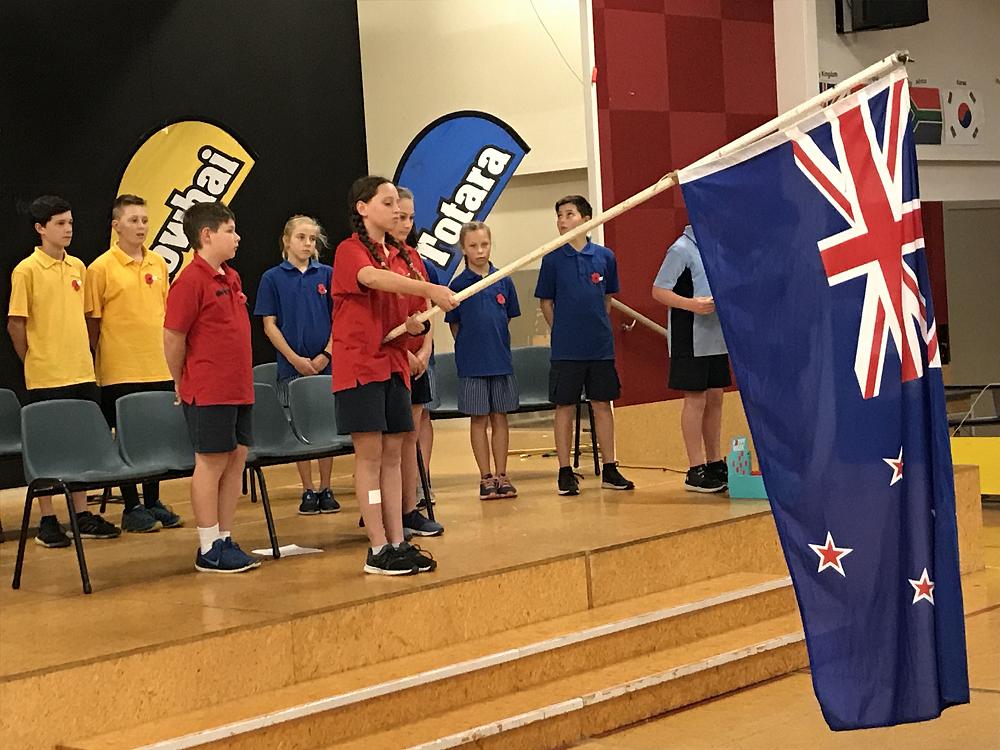
Assembly this week:
This week our Rimu House Leaders spoke about ANZAC Day and what this means to us. Here is a little glimpse of what was spoken about:
This week's Whakatauki is: Noku te whenua, o oku tupuna
And in English this is said as: “The land is mine, inherited from my ancestors”
You may have already noticed that this week's whakatauki is the same as we had in Week 9. We continue on with this whakatauki as we acknowledge our ancestors from our past who have fought in the Wars that has given our country the freedom and safety that makes New Zealand an enjoyable place to live.
During the term break we as New Zealanders will be acknowledging our ancestors on ANZAC Day which is on Wednesday April 25th. You and your family may be attending the dawn service on this day to acknowledge the many war veterans who sacrificed their lives for our country. This year's dawn service will be in Cranmer Square staring at 6:30 am and finishing at 11:00 am.
The ANZAC day memorials are an important part of our history as a nation. We also show RESPECT as a country by having no shops open on the morning of ANZAC day so that everyone can have the choice to attend a ceremony if they wish to. You can also contribute by having a minute of silence at 11:00 am
Some of the ways that we remember this important day are:
Wearing Red Poppies - These are a symbol of remembrance for all people who have lost their lives at war. Their origins go back as far as the Napoleonic Wars of the 19th Century, when the Flanders poppies were the first flowers to bloom over soldiers’ graves in France and Belgium. The red poppies are made out of cloth or paper and are worn for a few days as a sign of remembrance. Poppy Day itself is usually the Friday before Anzac Day.
Anzac Biscuits - Anzac Biscuits are a true kiwi favourite (although both New Zealand and Australia claim to have invented them!). They are, like most old-style biscuits, made from basic ingredients and provide a fairly nutritious cookie that can keep well for weeks.
These biscuits were popular during both world wars, as women at home could send them overseas and know they would still be edible after weeks at sea. Soldiers would break them up into pieces to make porridge, or simply enjoy them with a cup of tea.
Reading of the story - Kahlia and Sean reading
My Grandad Marches on ANZAC Day